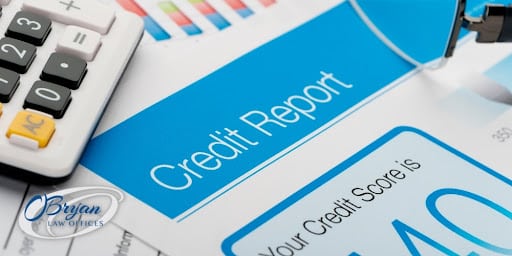Statute of Limitations on Debt in KY

Understanding the Statute of Limitations on Debt in Kentucky

According to state laws, the statute of limitations generally defines a state statute as a legal action with a specific time frame to address matters. When an individual owes money and is unable to make a payment towards their account or this particular bill over some time, this is called debt. Regardless of the reason for the unpaid debt, an individual could still see future problems with their personal finance, credit report, obtaining a personal loan, having another business lend money, etc.
For Kentucky, the statute of limitations on the area concerning debt has a rather lengthy list of limitations for that debt. If you have questions about federal law and the written contracts for the debt limitations period for Kentucky, an attorney with O’Bryan Law Offices is here to discuss a few options. Anyone concerned with the debt statute of limitations for this particular state could benefit from the guidance of an experienced Kentucky bankruptcy lawyer. Our attorneys are here to help explore your options for Kentucky debt relief. To schedule a free consultation with us, please call 502-339-0222 today.
What is the Statute of Limitations on Debt in Kentucky?
The statute of limitations on debt in Kentucky simply means that there is a period, a boundary that sets the limits for a debt collector or collection agency to sue you after providing written notice of your financial debts. Once the statute of limitations on a debt has expired, a debt collector has no other legal means for you to pay the debt.
Although legally, your unpaid debts still become consumer debt. So, while it isn’t required by law to pay off your debts, a partial payment, payment arrangement, or other means of payment within the fair debt collection practices standard could potentially benefit your future financial goals.
If you have an old debt collector contacting you regarding payment, consider speaking with an attorney to learn about your options before you pay a creditor. The state statutes involving an individual and the options for old debts, overdue debt, or even cases with delinquent debt are confusing enough to cause any individual dealing with debt to become overwhelmed. An O’Bryan lawyer can help you with any written contracts pertaining to the limitations period and provide you with your legal options.
Debt Collection in Kentucky
In today’s society, keeping up an appearance is often the top priority among many individuals. An individual’s financial goals are usually placed on the back burner for many reasons when you have a family and are trying to stay afloat financially. However, debts begin to stack up over time when you owe for services or financial products and cannot pay.
When a majority of your hard-earned money is taken by medical bills, housing, or numerous other challenging situations that place you in a financial bind, this can cause a spiral of emotions. The burden and stress become surreal when a creditor who is expecting the payment turns the debtor’s account over to a debt collector.
Debt collection in Kentucky does not have a particular state law on debt collectors’ practices. On the other hand, the Fair Debt Collection Practices Act provides a level of protection for consumers. Kentucky, not having its own FDCPA guidelines to follow, mirrors the federal law of statute.
The state of Kentucky requires one to adhere to the federal debt collecting laws, including:
- In particular cases, legal collections from debt collectors may communicate through calls, faxes, letters, and even personal visits.
- Following the initial contact, written documentation of the responsibilities one may owe requires reporting the origin of one’s debt, including a notation of the standing of the creditor’s original claim on the debt and the overall amount one may owe.
- Companies that are obligated to find debtors (debt collectors) can contact others to find a debtor. However, noting calls concerning a debt obligation is prohibited.
Statute of Limitations and Your Credit Report

Sometimes opening the mailbox to find the bold words “certified mail” can be discouraging. The written proof is often hard to understand what exactly is being asked from the creditor, or who the original creditor even is. To add to these issues, the complexity of our state’s statute of limitations laws and how they’re applied to your credit report can be critical in determining several factors in an individual’s life. For example, when people have debt added to their credit report, they could face several challenging problems when trying to purchase a house, rent an apartment, etc.
Overdue debt can typically last up to seven years on your credit report. Credit bureaus are forbidden by federal law from reporting debt older than seven years on someone’s credit report. Also, if you make a payment until the debt is paid off, this still may not remove it from your credit history.
Cases have been reported in old debt that, when speaking with a debt collector to negotiate terms of a debt settlement, led to the debt collector reporting the individual for failure to make payment in its entirety. If your most recent payment towards an overdue debt got you into further complications, contact the attorneys of O’Bryan Law Offices. Statutes of limitations on debt or similar circumstances in Kentucky still require one to abide by the federal trade commission laws. Our attorneys can help guide you through the appropriate legal action if a creditor decides to file a lawsuit.
Time-Barred Debt
What is Time-Barred Debt?
When the time has reached the duration of one’s statute of limitations on debt, the overdue debt is considered “time-barred debt.”
Once limitations on debt have expired and the debt has become time-barred, a debt collector has lost their window of opportunity to take you to court for the money you legally owe. If you happen to encounter a lawsuit regarding the time-barred debt, notify the court that the limitations period has expired.
However, a debt collector may contact you regarding time-barred debt depending on the particular state where the event occurred. Whereas in other states, this is forbidden by law. Should your specific state prohibit contacting someone past the point where limitations on debt have expired and negative marks continue, contact the attorneys at O’Bryan Law Offices.
How Do You Know if Your Debt is Time-Barred?
If you or a loved one has the question, “how do you know if your debt is time-barred?”, proceed by following these steps:
- Make a note of the last payment for the particular debt you owe. This also can include making a verbal statement like I promise I will have this paid by this date. In some jurisdictions, this can also be considered a separate agreement, or even a new agreement, just in a different form than your typical written contract.
- The state law for your time-barred debt could vary. The state and the amount of debt you’re dealing with are subject to the debt statute for that particular state.
- Contact a debt collections attorney. When dealing with the law, an attorney can guide you in hopes of the best possible outcome. The O’Bryan lawyers can inform you when to tread carefully around areas pertaining to the statutes of limitations, how to request for a debt collector to stop contacting you, and many other beneficial tools to help your financial needs.
What if I am Being Sued for Time-Barred Debt?
If you are being sued for a time-barred debt, the first thing to do is investigate. Having any lawsuit against you can be scary and lead you to unfamiliar grounds. When this happens, contact the O’Bryan lawyers to discuss the factors surrounding your case. Together we can discuss what grounds anyone has to collect money from you.
Can Time-Barred Debt Be Reviewed?
Time-barred debt can be reviewed when an individual takes specific steps like:
- Making a payment towards an old account
- Paying toward a delinquent debt
- Speaking with a debt collector and admitting responsibility for the debt being yours
The most straightforward course of action to take is to avoid claiming a debt unless you intend to pay it off in whole. In situations like this, concerning an old debt, request for verification, including the date of the last payment.
Statute of Limitations by Debt Types

The statutes of limitations can vary depending on the state, time period, and to what degree the individual is found guilty, by written, open-ended, promissory notes, or vocally.
- Credit Card Debt– Limitations include written- 10 years, open-ended- 5 years, promissory note- 15 years, & vocally- 5 years.
- Student Loan Debt- A student struggling to make ends meet has a limitation of 15 years for legal actions to be taken.
- Medical Debt- The limitation for medical debt is 5 years. In Kentucky, credit card debt is treated equally with medical debt. This means medical debt can also land on your credit report.
- Mortgage Debt- Homeowners with written contracts have 10 years to sue. Properties using collateral for debt, like a mortgage or home loans, have 15 years to sue. However, foreclosure is a potential defense used before filing a lawsuit.
- Auto Loan Debt- In Kentucky, auto loan debt limitations have 4 years to take legal action. Although, a lender may pursue other retaliatory measures, like repossessing your automobile, before filing a lawsuit.
- Tax Debt- Limitations involving tax debt, including federal tax debt, have 10 years to file a lawsuit, and state tax debt, may vary.
Kentucky Statute of Limitations on Debt FAQ
What Do You Do if a Debt Collector Contacts You About a Time-Barred Debt?
If a debt collector contacts you about a time-barred debt, investigate the situation for more information. One of two things will happen from here.
A.) The debt collector is accurate in their remarks to collect the money you owe.
B.) The debt collector is inaccurate in their remarks and has mistaken that you owe money.
The one thing you want to avoid is neglecting the debt collector calls altogether. When you fail to investigate the situation at hand, your personal finance could take a hit as a result. Finding out if the claims are yours is where to begin.
Do Debt Collectors Have to Prove Debt?
The debt collector must inform you that:
- Debts can be disputed.
- Should you choose not to dispute the debts within 30 days, the debts can be assumed valid.
When debt collectors contact you regarding past-due debts, federal law enforces certain information to be provided to ensure proof. This information includes the number of funds owned, the date of originating service, and the name/telephone number/address of the creditor.
If I Move to Another State, Which State's Statute of Limitations Apply to My Debt?
Suppose you are looking to move states and wonder which state’s statute of limitations to apply your debts; start by checking the companies’ agreements under the clause section. You will often find in disguised wording what most refer to as choice of venue, which determines the state in which to apply your statute of limitations.
For example, card companies dealing with individuals’ limitations on debt often favor filing cases in the state with the best benefits for their particular situation. Ultimately, speaking with an attorney could benefit you in more ways than one.
What Happens if I Have a Court Judgment Against Me, But I Still Can't Pay Off the Judgment?
If you have a court judgment against you and are still unable to pay off the judgment, do not wait to seek guidance from a Kentucky attorney. Time is crucial. Debt collectors are often driven based on performance and results. Unfortunately, a debt collector will reach for the stars when it comes to your possessions for anything that tends to offer value. Yes, that also means your home, car, or whatever they see fit to collect from you to put towards the owed amount.
Our Kentucky Bankruptcy Lawyers Can Help

When a majority of your hard-earned money is taken by medical bills, housing, or numerous other challenging situations that place you in a financial bind, this can cause a spiral of emotions. The burden and stress become surreal when a creditor makes negative marks or turns the debtor’s account over to a collection agency. If you are an individual who suffers from reaching your financial goals and has had bad luck with staying afloat financially, our Louisville bankruptcy lawyers are here to help you. To schedule a free case evaluation with us, please call 502-339-0222 today.





